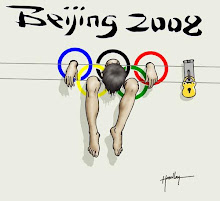
Khun Sa, shown at this headquarters in Homong, Myanmar on November 22, 1995, has died according to a former secretary who now works with ethnic Shan minority guerilla groups. The former drug lord was once one of the world's most wanted men and was also described as a liberation fighter. At the height of his notoriety, Khun Sa presided over a narcotics kingdom in the jungle valleys of the Golden Triangle. He died Friday Oct. 26, 2007, in Yangon.
One-time drug warlord Khun Sa, variously described as among the world's most wanted men and as a great liberation fighter, has died, an associate and a Myanmar official said Tuesday. He was 74.
Khuensai Jaiyen, a former secretary of Khun Sa who works with ethnic Shan minority guerrilla groups, said that his former boss died in the Myanmar capital of Yangon on Friday, according to his relatives.
Khuensai Jaiyen, a former secretary of Khun Sa who works with ethnic Shan minority guerrilla groups, said that his former boss died in the Myanmar capital of Yangon on Friday, according to his relatives.
The cause of death was not immediately known, but Khun Sa had long suffered from diabetes, partial paralysis and high blood pressure.
A Myanmar official in Yangon confirmed the death. Khun Sa was cremated Tuesday morning, said the official, who spoke on condition of anonymity because he is not authorized to speak to the press.
Khun Sa's body had been kept since Friday at Yay Way cemetery in Yangon's outskirts, where the cremation took place, said a cemetery worker, who asked not to be named for the same reason.
For nearly four decades, the charismatic warlord claimed to be fighting for autonomy for the Shan, one of many ethnic minorities who have battled Myanmar's central government for decades.
But narcotics agents around the world used terms like the "Prince of Death" to describe him and the United States offered a $2 million reward for his arrest.
"They say I have horns and fangs. Actually, I am a king without a crown," he told this reporter, who visited his remote headquarters of Ho Mong after an 11-hour mule ride.
At the height of his notoriety, Khun Sa presided over a veritable narcotics kingdom complete with satellite television, schools and surface-to-air missiles in the drug-producing Golden Triangle region where Myanmar, Thailand and Laos meet.
He preferred to paint himself as a liberation fighter for the Shan ethnic minority, heading up the Shan United Army later the Mong Tai Army in Myanmar's northeastern Shan State.
He had lived in seclusion in Yangon since 1996, when he surrendered to the country's ruling military junta who allowed him to run a string of businesses behind a veil of secrecy.
A Myanmar official in Yangon confirmed the death. Khun Sa was cremated Tuesday morning, said the official, who spoke on condition of anonymity because he is not authorized to speak to the press.
Khun Sa's body had been kept since Friday at Yay Way cemetery in Yangon's outskirts, where the cremation took place, said a cemetery worker, who asked not to be named for the same reason.
For nearly four decades, the charismatic warlord claimed to be fighting for autonomy for the Shan, one of many ethnic minorities who have battled Myanmar's central government for decades.
But narcotics agents around the world used terms like the "Prince of Death" to describe him and the United States offered a $2 million reward for his arrest.
"They say I have horns and fangs. Actually, I am a king without a crown," he told this reporter, who visited his remote headquarters of Ho Mong after an 11-hour mule ride.
At the height of his notoriety, Khun Sa presided over a veritable narcotics kingdom complete with satellite television, schools and surface-to-air missiles in the drug-producing Golden Triangle region where Myanmar, Thailand and Laos meet.
He preferred to paint himself as a liberation fighter for the Shan ethnic minority, heading up the Shan United Army later the Mong Tai Army in Myanmar's northeastern Shan State.
He had lived in seclusion in Yangon since 1996, when he surrendered to the country's ruling military junta who allowed him to run a string of businesses behind a veil of secrecy.
AP News.

No comments:
Post a Comment